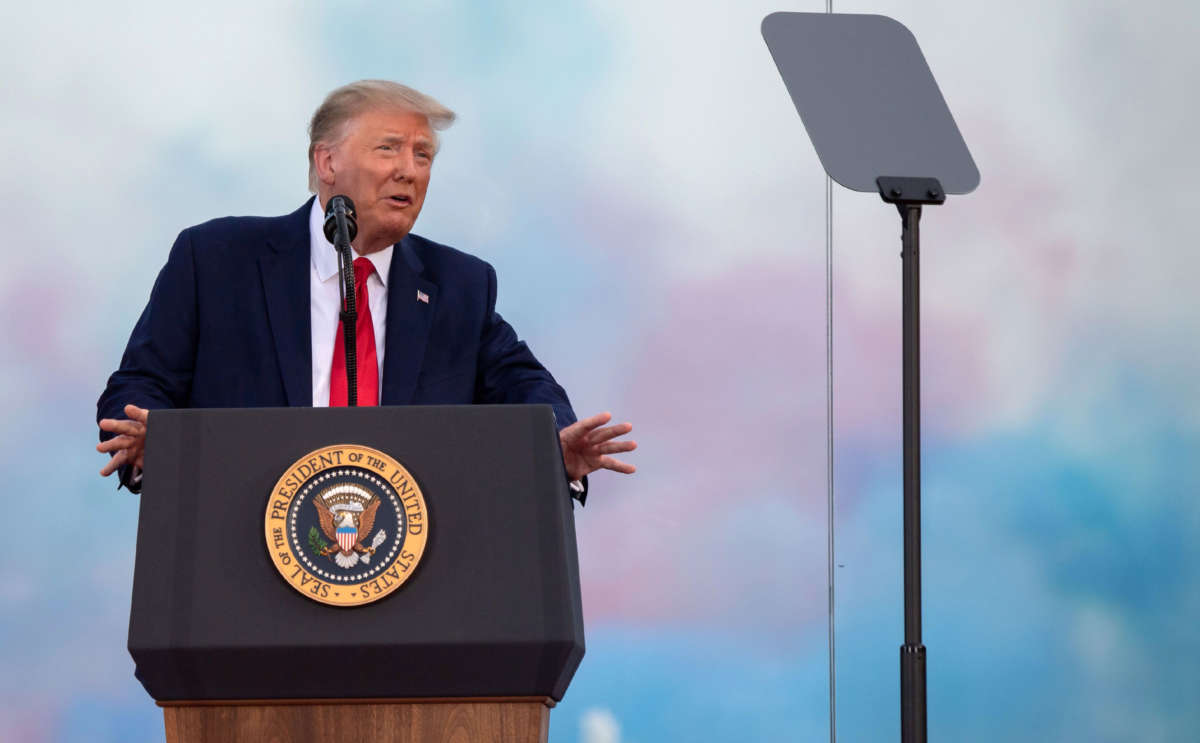Honest, paywall-free news is rare. Please support our boldly independent journalism with a donation of any size.
Mary Trump, niece to President Donald Trump, is set to publish a book chronicling her life in the Trump family later this month.
In the book, which is titled Too Much and Never Enough: How My Family Created the World’s Most Dangerous Man, Mary Trump makes several startling allegations, including the claim that the president paid someone to sit and take the SAT collegiate entrance exam on his behalf back when he was a high school student in Queens, New York.
While the president has often bragged about getting into the Wharton School of Business at the University of Pennsylvania, Mary Trump says her uncle got into the school using methods consistent with what she describes as his overarching practice of “cheating as a way of life.”
Mary says in her book that only through paying someone else to take the SAT exam for him was the president able to earn a strong enough score to gain entrance into Fordham University, from which he later transferred to Wharton.
Donald Trump was able to secure a meeting with a Wharton admissions official in the 1960s partly because his brother (Mary’s father) Fred Trump Jr. was friends with someone in that office. In reporting from The Washington Post from 2019, James Nolan, who was an admissions representative at the university at the time, described how Trump sat before him, with his father by his side, arguing for why he should be allowed to transfer.
Trump has described Wharton as being “the hardest school to get into,” and said that his admission into the school of business required “super genius stuff.”
If Mary Trump’s claim about Trump cheating on the SAT is true, it is particularly ironic that Trump has gone out of his way to draw public attention to the idea of his test-taking abilities throughout and preceding his presidency.
In 2017, in response to an insult from then-Secretary of State Rex Tillerson, the president alleged that he could beat his cabinet secretary in an intelligence quotient (IQ) test. Mensa, responding to inquiries about administering such a test to both individuals, announced it would be ready to do so.
“American Mensa would be happy to hold a testing session for President Trump and Secretary Tillerson,” Charles Brown, Mensa’s communications director, said.
Neither Trump nor Tillerson followed up with Mensa.
Meanwhile, on Twitter in 2013, Trump had also gratuitously introduced the idea of IQ testing by responding to a fan who called him a genius by saying, “IQ tests confirm!”
Trump, however, has never allowed any media organization access to IQ tests he has taken, despite referencing them repeatedly.
Media that fights fascism
Truthout is funded almost entirely by readers — that’s why we can speak truth to power and cut against the mainstream narrative. But independent journalists at Truthout face mounting political repression under Trump.
We rely on your support to survive McCarthyist censorship. Please make a tax-deductible one-time or monthly donation.
